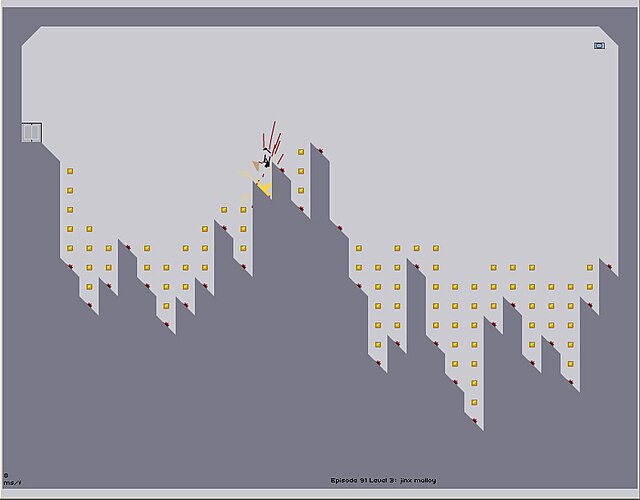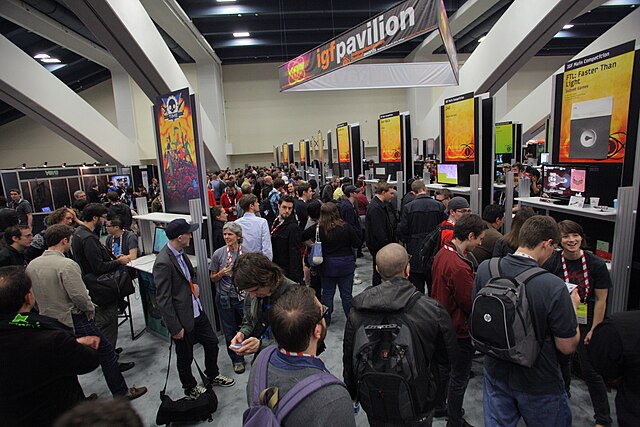An indie game, short for independent video game, is a video game created by individuals or smaller development teams without the financial and technical support of a large game publisher, in contrast to most "AAA" (triple-A) games. Because of their independence and freedom to develop, indie games often focus on innovation, experimental gameplay, and taking risks not usually afforded in AAA games. Indie games tend to be sold through digital distribution channels rather than at retail due to a lack of publisher support. The term is analogous to independent music or independent film in those respective mediums.
The 1982 ZX Spectrum was popular with hobbyist programmers in the UK.
N is a 2004 browser game that later was developed into a commercial indie game, N++ in 2015.
The Independent Games Festival exhibition during the 2013 Game Developers Conference in San Francisco, California, where indie developers can showcase their games to attendees
Image: Flotilla planning (Blendo Games)
AAA (video game industry)
In the video game industry, AAA (Triple-A) is an informal classification used to classify video games produced or distributed by a mid-sized or major publisher, which typically have higher development and marketing budgets than other tiers of games. In the mid-2010s, the term "AAA+" was used to describe AAA type games that generated additional revenue over time, in a similar fashion to massively multiplayer online games, by using games-as-a-service methods such as season passes and expansion packs. The similar construction "III" (Triple-I) has also been used to describe high-production-value games in the indie game industry.
Image: Electronic Arts Redwood City May 2011
Image: Ubisoft Montreal






